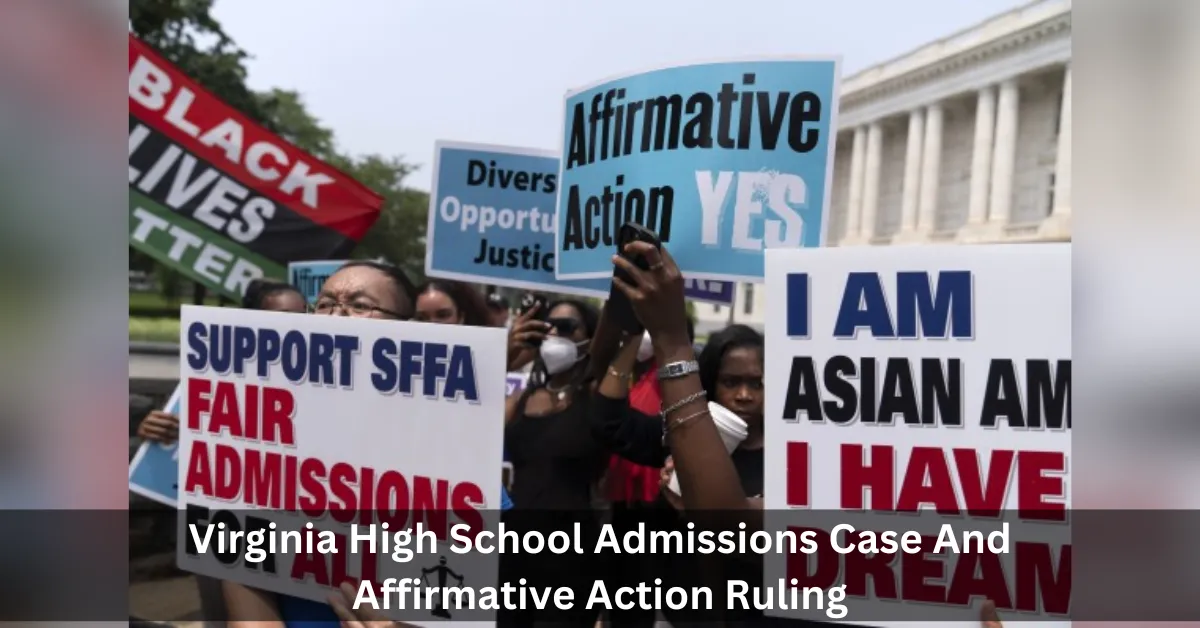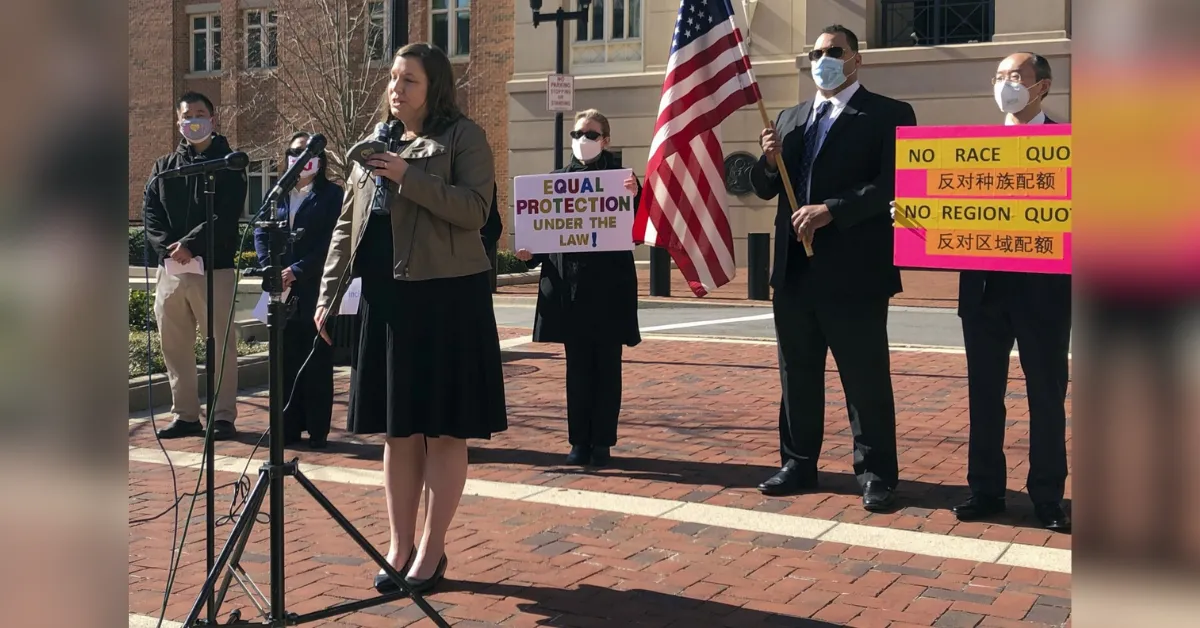VA — FALLS CHURCH The U.S. Supreme Court’s decision on Thursday outlawing affirmative action in college admissions may be used to clarify the intended extent of a federal appeals court’s order last month over the admissions procedure at an exclusive public high school in Virginia.
Outside of the capital, the Thomas Jefferson High School for Science and Technology consistently ranks among the top public institutions in the country; entrance is tricky.
A legal challenge to TJ’s admissions policy was made in 2021 by a group of parents with the support of a conservative legal foundation.
The foundation is now requesting that the Supreme Court take up the matter.
The lawsuit presents related problems, but not the same as those covered by the high court’s decision declaring Harvard and the University of North Carolina’s admissions processes unconstitutional.
The institutions’ admissions policies included race as one of many considerations when making admissions decisions. However, in the TJ case, all parties concur that the admissions policies are race-neutral.
The group, however, claims that the admissions standards are “race-based proxies” used to achieve racial balancing. According to them, the policy is biased against Asian Americans, who previously comprised 70% of the student body.
The Fairfax County School Board’s controversy over implementing its new policy in 2020 is another example cited by the group.
Board members and administrators expressed concern over the egregiously low representation of Black and Hispanic pupils at TJ for an extended period.
According to the group, the new policies aim to increase Black and Hispanic representation at the expense of the Asian model.
Significant racial diversity was observed in the first freshmen class admitted under the new regulations. Black students climbed from 1% to 7%, and Hispanics increased from 3% to 11% in representation. The percentage of Asian Americans has dropped from 73% to 54%.
The new regulations did away with standardized testing in favour of a procedure that allows a portion of seats geographically and considers a student’s “experience factors,” such as whether they are low-income or speak English as a second language.
A federal judge declared The admissions process illegal last year, who noted that “the discussion of admissions changes was infected with talk of racial balancing from its inception.”
If you are interested to know more about this news, then see this tweeter post that NBC4 Washington shares:
Here’s what the Supreme Court’s ruling on Thursday could mean for Thomas Jefferson High School for Science and Technology. https://t.co/g4hpeRb3UA
— NBC4 Washington (@nbcwashington) July 1, 2023
However, the Richmond-based 4th U.S. Circuit Court of Appeals overturned that decision in May.
By a vote of 2 to 1, the justices determined that the school board had a legitimate interest in promoting diversity and that characterizing those efforts as prejudice against Asian Americans “simply runs counter to common sense.”
The parents suing for anti-Asian discrimination are represented by the Pacific Legal Foundation, which is seeking the U.S. Supreme Court to hear their case.
“We think it presents a really strong vehicle and the time is right. And we’re certainly hopeful the court will take it up,” the foundation’s senior attorney, Joshua Thompson, said.
As is customary in significant Supreme Court cases, follow-up cases to Thursday’s decision will likely take years to resolve as institutions delay their time and try to save policies to which they are philosophically devoted, according to Eugene Kontorovich, a law professor at George Mason University.
More articles that are identical to this one are provided below, For more of the same, read on:
- Lakeland Christian And Santa Fe Stars Elevate Team Florida In Geico Tourney
- Former Henrico Educator Charged With 10 Counts Of S*xual Acts With Student
- Student S*xual Assault: Kentwood Schools’ Failure Alleged In Lawsuit
However, he was less persuaded that the TJ case would be necessary. According to him, the argument over whether TJ’s policies are constitutional will focus on the verifiable evidence of the school board’s reasons for enacting the policy.
He said disagreement over how colleges might employ essay questions on diverse subjects to produce the same outcomes as the already outlawed affirmative action programs are more plausible.
When he stated that universities could consider a person’s application essay and “how race affected his or her life, be it through discrimination, inspiration, or otherwise,” Chief Justice John Roberts of the Supreme Court’s majority judgment gave a little leeway.
However, Roberts added that universities “may not simply establish through application essays or other means the regime we hold unlawful today.”
Colleges will reportedly assign essay questions on diversity-related subjects, according to Kontorovich, “that will give them the latitude to quietly take race into consideration in ways that will be more subtle.”
However, he believes the court will ultimately reject such end-around strategies, at least in their current form.
On Friday, Fairfax County Public Schools announced that it is examining the Supreme Court decision.
In August, Pacific Legal will formally submit its petition to the Supreme Court, and by the end of the year, it should be clear whether the case will be heard, according to Thompson.
Tyler is a passionate journalist with a keen eye for detail and a deep love for uncovering the truth. With years of experience covering a wide range of topics, Tyler has a proven track record of delivering insightful and thought-provoking articles to readers everywhere. Whether it’s breaking news, in-depth investigations, or behind-the-scenes looks at the world of politics and entertainment, Tyler has a unique ability to bring a story to life and make it relevant to audiences everywhere. When he’s not writing, you can find Tyler exploring new cultures, trying new foods, and soaking up the beauty of the world around him.


